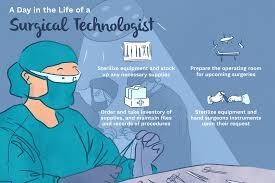
future of AI technology
Artificial Intelligence (AI) technology is transforming our world in ways we once thought were impossible. From healthcare to manufacturing, and finance to daily life, AI’s applications seem boundless. In this article, we’ll explore the future of AI technology—what it promises, the challenges it faces, and how it will shape industries and societies moving forward.
What is AI Technology?
Definition and Historical Context
AI technology refers to the simulation of human intelligence in machines programmed to think, learn, and make decisions. The roots of AI can be traced back to the 1950s, when early pioneers like Alan Turing explored the concept of intelligent machines. The field has come a long way since then, evolving through various phases of innovation.
Evolution of Artificial Intelligence
From early rule-based systems to advanced neural networks, AI has evolved rapidly. The advent of machine learning (ML) and deep learning has driven significant breakthroughs, enabling machines to learn from data, identify patterns, and even solve complex problems.
Current Applications of AI Technology
AI in Healthcare
AI is revolutionising healthcare by assisting with diagnosis, drug development, and personalised treatment plans. Technologies like machine learning algorithms help detect diseases early, while AI-driven robotic surgeries improve precision and patient outcomes.
AI in Finance
In the financial sector, AI plays a pivotal role in fraud detection, algorithmic trading, and customer service automation. Machine learning algorithms help financial institutions analyse vast datasets, offering personalised investment advice and improving risk management.
AI in Manufacturing and Automation
AI-powered automation systems are streamlining manufacturing processes. Predictive maintenance powered by AI ensures machinery functions efficiently, reducing downtime and operational costs.
The Role of Machine Learning in AI’s Future
How Machine Learning Powers AI
Machine learning is at the heart of AI. It allows systems to learn from data without explicit programming. This self-learning capability is crucial for creating smarter, more adaptive AI technologies that can evolve over time.
Use Cases of Machine Learning
Machine learning applications span numerous industries, from recommendation engines in retail to natural language processing in virtual assistants. In healthcare, it’s being used to detect anomalies in medical imaging, while in finance, it helps automate portfolio management.
The Impact of AI on the Job Market
Automation and Job Displacement
The rise of AI and automation has sparked concerns about job displacement. As machines take over repetitive tasks, certain job roles may become redundant. However, the future of AI technology also promises to create new roles that demand advanced skills in AI development, data analysis, and human-machine interaction.
New Opportunities in AI-Related Fields
As industries adapt, opportunities for AI engineers, data scientists, and ethics specialists are growing. The expansion of AI-driven sectors is expected to generate jobs in areas that require oversight, creativity, and collaboration.
Ethical Considerations of AI Development
Bias in AI Algorithms
One of the pressing concerns in AI is the potential for bias. Machine learning models can perpetuate existing biases in data, leading to unfair outcomes. Addressing this issue requires transparency in AI development and robust methods for debiasing algorithms.
Ensuring Transparency and Accountability
As AI systems gain autonomy, ensuring accountability becomes essential. Transparent processes for decision-making and compliance with ethical standards are critical to building trust in AI technologies.
AI in Everyday Life
AI-Powered Virtual Assistants
Virtual assistants like Siri, Alexa, and Google Assistant have integrated AI into our daily routines. These systems use natural language processing (NLP) to understand user commands, manage tasks, and provide real-time information, enhancing productivity and convenience.
AI in Smart Homes and Devices
Smart homes powered by AI offer personalised environments where lights, heating, and security systems can be managed remotely. AI’s ability to learn user preferences enables seamless automation, making daily life more comfortable and efficient.
The Role of Government and Policy in AI’s Future
Regulation and Compliance in AI Technologies
As AI technology grows more powerful, regulatory frameworks are necessary to ensure it is used responsibly. Governments worldwide are considering policies that govern AI’s ethical use, with a focus on protecting data privacy and ensuring fairness in algorithmic decision-making.
Global AI Governance
Global collaboration is crucial in establishing a unified approach to AI governance. Nations are working together to create standards that address concerns around AI development, particularly in areas like surveillance, military use, and cybersecurity.
The Future of AI in Education
Personalised Learning through AI
AI is transforming education by offering personalised learning experiences. Adaptive learning platforms can adjust to individual student needs, providing tailored content that matches their pace and learning style.
AI in Curriculum Development and Administration
In schools and universities, AI is being used to optimise curriculum design, automate administrative tasks, and analyse student performance data. This allows educators to focus on delivering high-quality instruction while AI handles the logistical aspects.
The Role of AI in Climate Change Mitigation
AI in Predicting and Managing Natural Disasters
AI technologies are being used to predict and mitigate the effects of climate change. From forecasting extreme weather events to optimising disaster response, AI offers powerful tools for protecting communities.
AI for Sustainable Energy Solutions
AI-driven systems help optimise energy consumption and production, contributing to more sustainable solutions. In renewable energy sectors like wind and solar, AI helps manage grid efficiency and improve energy storage capabilities.
Challenges in AI Development
Data Privacy and Security Concerns
AI’s reliance on massive amounts of data raises concerns about privacy and security. Protecting sensitive data from cyber threats is a priority, as is ensuring that AI systems adhere to stringent data protection standards.
Overcoming Technical Limitations
Despite AI’s remarkable advancements, there are still significant technical hurdles. AI systems require vast computational power and data, and their ability to reason and understand complex human emotions is still limited.
The Future of AI Research and Innovation
AI and Quantum Computing
Quantum computing promises to revolutionise AI by providing unparalleled computational power. This could accelerate advancements in areas like drug discovery, cryptography, and complex problem-solving.
Advancements in Neural Networks
Neural networks, the backbone of deep learning, are constantly evolving. Future developments may lead to AI systems that can reason more like humans, offering new possibilities for human-machine collaboration.
How AI Technology Will Shape the Future
AI’s Role in Shaping Industries
AI will continue to disrupt industries, from autonomous vehicles in transportation to predictive analytics in healthcare. As AI technology advances, its ability to solve complex problems will transform the way we live and work.
The Potential of AI to Enhance Human Capabilities
Rather than replacing humans, AI has the potential to augment human capabilities. AI-powered tools can enhance creativity, assist in decision-making, and allow humans to focus on higher-level tasks that require empathy, judgement, and collaboration.
Conclusion: Embracing the Future of AI Technology
The future of AI technology is bright, filled with possibilities that promise to reshape industries, create new opportunities, and tackle global challenges. However, the road ahead requires careful navigation of ethical, technical, and regulatory challenges to ensure AI’s responsible and beneficial development for







2 thoughts on “The Future of AI Technology: Unlocking New Horizons”